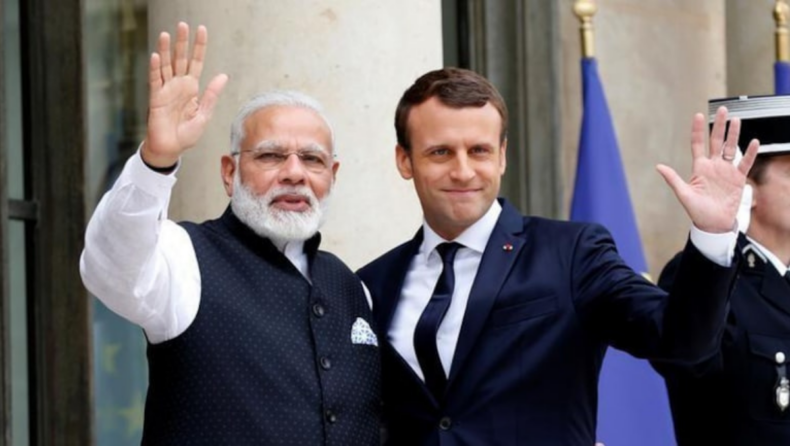Apart from attending the critical India-Nordic summit in Copenhagen, Prime Minister Narendra Modi is set to go to Europe from May 2 to May 6 for bilateral discussions with German Chancellor Olaf Scholz and re-elected French President Emmanuel Macron.
With Macron re-elected to a second term as French President by a landslide, PM Modi is anticipated to pay a visit to Paris to meet and congratulate the leader of one of India’s closest bilateral allies.
Apart from sharing similar views on the Indo-Pacific, India and France have extremely tight political and defence ties, with both sides prepared to assist one another in areas of important and new technology.
India and France, as key partners, are anticipated to further PM Modi’s Atmanirbhar Bharat initiative by building air-independent propulsion submarines and high-power aircraft engines in India, in addition to charting the Indian seabed.
PM Modi and President Macron also have personal ties, and the latter is aware of India’s stance on the Ukraine war with Russia.
With Russia pursuing its Ukraine campaign with vigor, the battle in Europe will be a prominent priority during PM Modi’s visit to the Nordic nations, with Germany reconsidering its posture toward Moscow. Germany, in particular, has been a significant trading partner of both Russia and China, but the Ukraine conflict and the election of a new Chancellor have prompted Bonn to consider its national security.
While Prime Minister Modi will seek tighter bilateral ties with Nordic nations while mending fences with host Denmark, investment, renewable technology, and trade will be top priorities. In contrast to the past, the Nordic nations now desire close connections with India.
While the precise dates and times of PM Modi’s discussions are still being worked out, the Indian leader will attempt to restore bilateral ties with German Chancellor Scholz.
Germany established very tight commercial links with China under the Angela Merkel administration by exporting high-end autos to Beijing and maintaining a sizable oil and gas partnership with Russia. However, the Russian invasion of Ukraine changed the game, with Germany increasing its defence spending and purchasing fighter planes from the United States for air defence.
Edited By: Khushi Thakur
Published By: Akshaj Joshi













